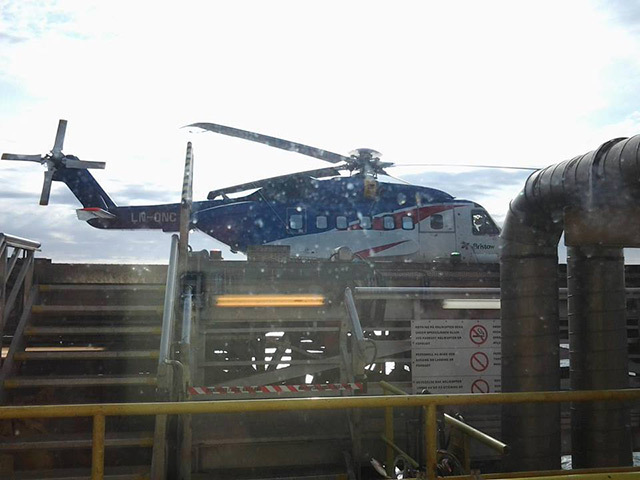
Offshore workers have said they would rather travel to oil rigs and platforms by boat than in helicopters.
One worker, who did not want to give her name, has worked in the oil industry for 21 years and regularly flies offshore.
She said she will “always feel nervous” about getting in a helicopter but after the latest incident the workforce had no confidence in aircraft.
She said: “This time there’s something different with people. It’s almost like we’ve just got a bit of confidence back but everyone has lost it completely now, everyone is absolutely terrified.
“We’re always going to be nervous going in the helicopter but when they are just falling out of the sky, how can they expect anyone to go and fly?”
With most of the Super Puma fleet grounded after Friday’s ditching, many operators have turned to the Sikorsky S-92 aircraft to fill the gap.
A man who flew to an installation in the Norwegian section of the North Sea yesterday said he did not feel like he could refuse to get into a Super Puma.
He said: “The incident makes us very concerned and I would say about 98% of the workforce are worried about going in helicopters.
“The Sikorskys are much bigger and more comfortable – you are squashed in like sardines on the Super Puma aircraft.
“They always say that you have a choice about whether to get in the helicopters or not, but I am a contractor so it is a choice of paying my mortgage.
“I would rather get to the rig on a boat, which would take 12 hours, than go on the flight for just over an hour.”
Meanwhile a Sikorsky S-92 helicopter operated by Bristow was shut down on a Norwegian rig after a warning light was activated in the cockpit, it emerged last night.
Offshore workers have been calling for the S-92 to be used more in transporting them on and off rigs, after last week’s Super Puma tragedy.
Monday’s incident on the Stena Don oil rig was described as “a precautionary measure” in a statement issued by Bristow Helicopters last night.
Recommended for you
